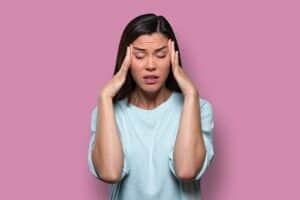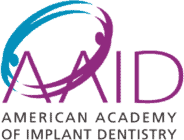
Teeth grinding is a common oral health issue, with a variety of possible causes. And while teeth grinding is annoying for you and anyone sleeping in the same room, it’s more than just an inconvenience. Teeth grinding can cause permanent teeth damage and even tooth loss if left unaddressed. It can also cause other problems, including headaches and toothache. Understanding what causes teeth grinding, what it does to your teeth and jaw, and how it affects other parts of your health is the first step in solving the problem.
What Causes Teeth Grinding
Teeth grinding can be tricky to diagnose because the potential causes are so many and so varied. By contrast, symptoms of teeth grinding are fairly straightforward–teeth grinding or clenching at night, often loudly enough to wake up other people being the most common one. This can disrupt sleep, damage teeth, and lead to jaw pain throughout the day. The causes behind teeth grinding could include any of the following alone or in combination:
- Stress. Stress, anger, frustration, increased pressure at work can all be root causes behind teeth grinding as the body works through the tension.
- Misalignment of the teeth or jaw. A common root cause of teeth grinding, which can be corrected by gradually realigning the teeth or jaw via a variety of techniques.
- Age. Teeth grinding often affects younger children, but it tends to fade away as they grow up.
- Personality type. Personality types that are aggressive, competitive, or prone to stress often experience teeth grinding as well.
- Medications and other substances. Some medications are linked to teeth grinding as they affect sleep patterns. Recreational substances including alcohol and tobacco are also strongly linked to teeth grinding.
- Family members with bruxism. Sleep bruxism tends to run in families. If your parents, grandparents, or siblings experience it, you may as well.
- Other disorders. Bruxism can be associated with several other medical disorders, including Parkinson’s disease, dementia, gastroesophageal reflux disorder (GERD), epilepsy, night terrors, sleep-related disorders such as sleep apnea, and attention-deficit/hyperactivity disorder (ADHD).
If you experience teeth grinding, your doctor or dentist can help you find the cause and suggest a course of treatment. This will most likely include addressing the root issue, be it misalignment, stress, or some other health issue.
Teeth Grinding, Toothaches, and Headaches
Teeth grinding is a potentially serious condition, one that may affect more than just your sleep. Teeth grinding can be the cause of problems during your waking hours, including toothaches and headaches. The reason for this has to do with the mechanisms behind teeth grinding, and the damage that it does to your teeth, jaw, and muscles.
Teeth grinding can cause toothaches by removing enamel from the tooth as the teeth grind together overnight. This weakens the tooth, leaving the sensitive pulp inside vulnerable to heat, cold, and other stimuli that can cause aches and pains. It also leaves the tooth vulnerable to infection or cavities, which can also cause a toothache or even tooth loss.
The link between teeth grinding and headaches is an interesting and complex one, as teeth grinding may cause headaches which in turn cause stress which manifests as more teeth grinding. The muscle tension in the jaws, face, and scalp that causes teeth grinding may persist throughout the day, manifesting as a headache. This may worsen as time passes, as the tension on these muscles during nightly teeth grinding takes its toll.
Treatment for Teeth Grinding
Fortunately, there are a variety of possible treatments for teeth grinding that your dentist or physician may suggest alone or in combination. Mouthguards may be worn at night to protect the teeth, and removable splints may be employed to help realign the teeth and jaw. Changes in diet, lifestyle, and alcohol or tobacco use may help, as might some medications. Therapy or other stress-reduction techniques may address stress or nervous tension as a cause of teeth grinding. It all depends on the individual patient’s needs, and sometimes more than one solution is needed.
So if you’re dealing with teeth grinding, don’t despair. Make an appointment with your dentist today and they’ll help you find the right course of action for you. Teeth grinding is nearly always treatable, but starting sooner gets better results so don’t delay.




